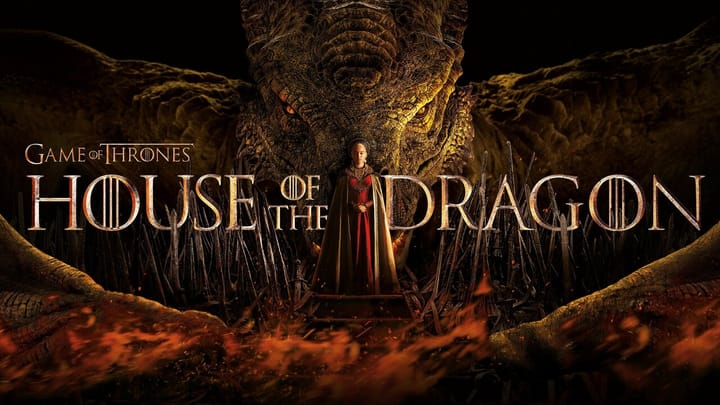Principles of Economics by Saifedean Ammous Summary
Throughout history, the currency or commodity with the highest stock-to-flow ratio has become the widely adopted money.

Largely based on Austrian economists: Menger, Mises, Rothbard, and Hayek.
Key Takeaways
- Gold is backed by nothing. Currencies are backed by nothing.
- Time on earth is finite which means we always have a universal preference for earlier over later goods.
- Throughout history, the currency or commodity with the highest stock-to-flow ratio has become the widely adopted money.
- Any supply of money is enough for any economy (as long as it is divisible).
- Money isn’t a social construct. We use the highest stock-to-flow asset as money. Money is much more pragmatic than the Marxists believe. Money couldn’t be a tree leaf, water, car, or house. Even if we all believed it, it wouldn’t be effective.
- Money is the good with the least diminishing marginal utility.
- All business ventures are taking a speculative bet on how to create value. They have to be contrarian but correct because if everyone thinks that a business will be profitable, everyone would get into that business. Nobody thought electric cars would work but Elon still started Tesla and made it work. That huge bet is what made him the richest man in the world.
- Capitalism is skin in the game. The people who control their capital are the people who will lose it if they misallocate it. In contrast, socialism has an elite group that makes all of the capital decisions. If they fail it does not harm them personally but can harm the population.
- Socialism is the banning of private property.
- Interest rates are the price of capital. When they are artificially manipulated by governments, you get a recession.
- The government does not effectively help the poor, elderly, mentally ill, or injured. Without taxes, people would have much more money to help the poor, elderly, mentally ill, or injured.
Lectures 1 & 2
Work involves disutility. You only do enough of it to get money to achieve your financial goals (essentials, save, invest, etc).
On Bitcoin: Proof-of-work is analogously the vault that keeps the gold safe. Bitcoin doesn’t derive value from proof of work just like gold doesn’t derive value from being put in a vault. We put it in the vault because the gold is valuable. We use proof of work because bitcoin is valuable.
- If you put dirt in a vault, the dirt does not become more valuable.
Bitcoin is not backed by energy or computers. It is backed by code. What is gold backed by? What are currencies backed by? What is USD backed by? Nothing. Except maybe petroleum. Saudi Aramco is 2nd largest business in the world.
- A backed currency is one that a commodity backs or supports, namely a precious metal like silver or gold.
The author says that UBI and unemployment create entitlement. People will think the world owes you healthcare, food, shelter, money, etc. But the world doesn’t owe you anything. If there is no other option, people find a way to have some kind of productivity to make money. If you grow up seeing your parents get money for being unemployed, it will be hard for you to break the cycle. Not to mention it weakens the country—the nation that adopts UBI will have low productivity and a weak economy. This will lead to more scarcity (lower production means fewer goods are made. Fewer good means more scarcity. This means that prices go up. Goods will become too expensive for UBI recipients. This is why UBI doesn’t work. UBI only works if productivity is automated and jobs are replaced by robots and computers. Welfare is harmful to the people it is given to. It creates a class of people who are effectively unemployable. What we should do is actually help people in our community who need help rather than trying to elect someone to redistribute only to everyone.
Lectures 3 to 5
Time on earth is finite which means we always have a time preference: a universal preference for earlier over later goods.
How do we trade out time for economic resources?
- Labor
- Capital
- Technology
- Division of labor
- Indirect exchange, money
- Entrepreneurship
Labor (work): we work to get money or some product (we go fishing to catch a fish to eat). We do this not for itself (not a hobby). We do it explicitly for pay.
Capital (money): Capital goods. Ex) A fishing rod. Aids your productivity. You do not consume it for its own sake but for what it can do for you. This is subjective. If you use your fishing rod to catch and release just for fun, then it is a consumption good, not a capital good.
- You must defer consumption (save money) to accumulate capital.
- The constraint on capital accumulation is time preference. High time preference means you will spend your capital not to consume rather than save or invest.
Technology (knowledge): I think this is knowledge or information. This is the most powerful form of capital we have today. One person knowing technology does not diminish another person’s use of it. It can spread. The ideas can live on past the life span of the inventor.
Division of labor (trade): Split up the labor to different people. Different people specialize in one task to create a higher output than everyone trying to make everything for themselves.
- An individual should try batching work and hiring other people to do work that takes their time.
Indirect exchange (money):
- An individual should use software products designed to increase productivity.
Lecture 6
Throughout history, the currency or commodity with the highest stock-to-flow ratio has become the widely adopted money.
The biggest difference in thought between Austrian economists and classical/modern economists: Money is uniquely different from all economic goods in that it is the only good whose absolute quantity does not matter.
- Any supply of money is enough for any economy (as long as it is divisible).
Keynes and Milton Friedman both argued that making money (gold coins) is too expensive, so we should make cheaper (paper) money. But that is a bad idea because now a central bank can print money.
Marxists believe that money is a social construct or a shared hallucination. Saifedean says that Yuval Harari is a Marxist and that he promoted this idea in Sapiens.
Money isn’t a social construct. We use the highest stock-to-flow asset as money. Money is much more pragmatic than the Marxists believe. Money couldn’t be a tree leaf, water, car, or house. Even if we all believed it, it wouldn’t be effective.
- If you use tree leaves, people will pick all of the leaves off of the trees.
- If you have 5 buckets of water outside your house, they will eventually evaporate.
- You cannot easily divide up a car or house.
- Money must be durable, homogenous, divisible and group-able, and transportable.
What if we tried to make gold coins out of copper instead? Copper's stock-to-flow is much lower than gold, so people will go and extract as much copper as they can—this will drive down the price.
Debt only functions as money when there is a system and rules in place that allow it.
Money is a technology for final settlement of trade.
Governments force their citizens to use debt as money but hold gold themselves because they do not trust each other’s debts. Because debt is not money, but gold is.
- Money is uniquely different from all economic goods in that it is the one good whose absolute quantity does not matter.
- Any supply of money is enough for any economy. (Because purchasing power depends on goods/service production.)
- Money is the good with the least diminishing marginal utility.
- Money is also different in that the more expensive it is to produce, the more desirable it is as money.
- Keynes, Friedman, and many economists objected to gold being used as money because of the high cost. But that cost is far lower than the real costs of a money that is cheap to produce.
Lecture 8
All business ventures are taking a speculative bet on how to create value. They have to be contrarian but correct because if everyone thinks that a business will be profitable, everyone would get into that business. Nobody thought electric cars would work but Elon still started Tesla and made it work. That huge bet is what made him the richest man in the world.
Capitalism is skin in the game. The people who control their capital are the people who will lose it if they misallocate it. In contrast, socialism has an elite group that makes all of the capital decisions. If they fail it does not harm them personally but can harm the population.
Socialism is government control over the means of production or the banning of private property.
Interest rates are the price of capital. When they are artificially manipulated by governments, you get a recession.
How do socialist and communist countries get people to do the things nobody wants to do when everyone is paid the same? Like, be a surgeon or a garbageman? They force them to otherwise they’ll be killed or sent to the gulag. And the cost-benefit analysis causes people to do the bad job because it’s better than being killed or tortured.
Lecture 9
Rothbard’s typology of intervention:
1. Autistic
- A violates the property or body of B. Example: murder or prohibition of speech.
2. Binary
- A coercively acquires property or service from B. Example: theft, conscription, slavery, taxation.
3. Triangular
- A coercively imposes terms on the interaction between B and C. Example: Price controls, licensing
Without taxes, people would have way more money to help the poor and elderly or mentally ill or injured. The government doesn’t even effectively help these people as is with its high taxation.



Comments ()